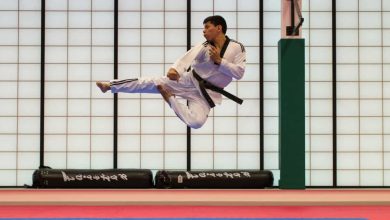Common Remedies for Spine Injuries That You Should Try

Spine injuries can have a massive impact on a person’s quality of life, causing pain, mobility issues, and even long-term disabilities. If you have experienced a spine injury, exploring various remedies to manage your symptoms, promote healing, and improve your overall well-being is key.
While treatment options may vary depending on the type and severity of the spine injury, there are several common remedies that you should consider. This article will discuss some of the most effective remedies for spine injuries that can help alleviate pain and support your recovery.
Physical Therapy
Physical therapy is a fundamental component of spine injury treatment. A skilled physical therapist can develop a personalized rehabilitation program that focuses on improving your range of motion, strengthening the muscles surrounding the spine, and enhancing overall mobility.
Physical therapy may include various exercises, stretches, manual techniques, and heat or cold therapy modalities. The goal is to reduce pain, increase flexibility, and restore function to the affected area.
Chiropractic Care
Chiropractic care focuses mainly on diagnosing and treating musculoskeletal disorders, including spine injuries. A chiropractor uses manual adjustment techniques to realign the spine, relieve pressure on affected nerves, and promote healing. They may also incorporate other complementary therapies such as massage, electrical stimulation, or ultrasound therapy to enhance the effectiveness of treatment.
Chiropractic care can help reduce pain, improve spinal mobility, and restore proper alignment to the affected area. For more information about this avenue of assistance, contacting chiropractors for spine injuries in Florida can be highly beneficial.
Medications
Depending on the severity of your spine injury and the level of pain you experience, your medical professional may recommend certain medications to help manage your symptoms. Nonsteroidal anti-inflammatory drugs (NSAIDs) such as ibuprofen or naproxen can help reduce inflammation and relieve pain.
Muscle relaxants may be prescribed to alleviate muscle spasms associated with spine injuries. In more severe cases, opioids may be prescribed for short-term pain relief, but caution must be exercised due to the risk of dependency and addiction.
Spinal Injections
Spinal injections may be considered a targeted treatment option for individuals with persistent or severe pain. Epidural steroid injections, facet joint injections, or nerve block injections can provide temporary relief by reducing inflammation and numbing the affected nerves. A qualified healthcare professional administers these injections and can relieve pain, allowing you to participate more effectively in physical therapy and other rehabilitative activities.
Acupuncture
Acupuncture, an ancient Chinese healing technique, occurs by inserting thin needles into specific body points. This practice is believed to stimulate the body’s natural healing response and restore balance to the energy flow.
Acupuncture has been shown to provide pain relief and promote relaxation. While the evidence for acupuncture’s effectiveness in treating spine injuries is still limited, many individuals find it a helpful complementary therapy that can reduce pain and improve overall well-being.
Assistive Devices
Depending on the severity of your spine injury and mobility limitations, assistive devices may be necessary. Devices such as braces, crutches, canes, or walkers can provide support and stability, helping to alleviate strain on the spine and reduce the risk of further injury. These devices can be especially beneficial during the healing process or when participating in physical therapy to ensure proper body alignment and prevent excessive strain on the spine.
Mind-Body Therapies
Managing a spine injury’s emotional and psychological impact is essential for overall well-being. Mind-body therapies such as yoga, meditation, and relaxation can help reduce stress, promote a positive mindset, and improve mental resilience.
These practices focus on calming the mind, improving body awareness, and fostering a sense of inner peace. Incorporating mind-body therapies into your daily routine can support your healing process and enhance your overall quality of life.
Surgery
Spine injuries may sometimes require surgical intervention to stabilize the spine, decompress nerves, or correct structural abnormalities. Surgery is usually considered when conservative treatment methods have not provided adequate relief or when there is a risk of further damage or disability.
The specific surgical procedure will depend on the nature and location of the spine injury. It is essential to consult with a qualified spine surgeon to discuss the potential benefits and risks of surgery based on your unique situation.
It is important to note that the abovementioned remedies are general recommendations and may not be suitable for everyone. The appropriate treatment plan for a spine injury should be determined in consultation with healthcare professionals who can assess your specific condition and tailor a treatment approach to your needs.
Additionally, it is crucial to follow medical advice, adhere to prescribed therapies, and engage in ongoing rehabilitation to optimize your recovery and minimize the long-term impact of the spine injury.
Don’t Live With Spine Injuries; Get Help Today!
In conclusion, managing a spine injury requires a comprehensive approach combining various remedies tailored to your condition. Consulting with healthcare professionals and following their guidance is highly important in developing an effective treatment plan that supports your recovery and helps you regain function and quality of life after a spine injury.




